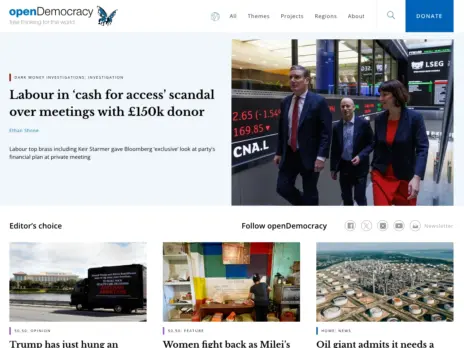The Mail on Sunday fought and won a six-week legal battle to be able to report on a celebrity's divorce papers.
Judge David Hodge QC rejected a bid by Dragons' Den star Duncan Bannatyne to block publication of court papers showing he had lied to a court in an attempt to reduce the amount he would have to pay his former wife.
The judge ruled that there is a public interest in exposing any attempt to mislead a court, even if the person responsible subsequently repents of what he has done and corrects the situation.
Associated Newspapers fought for six-week weeks to get access to various papers filed in two actions against Bannatyne and his company, Bannatyne Fitness Ltd, by the firm's former chief executive officer Graham Armstrong.
The disclosures led to a front-page piece in The Mail on Sunday on 22 November headlined "Jungle star Bannatyne's £10m lie to judge in his divorce case", and a double-page inside spread inside headlined: "Exposed: TV Dragon forged evidence to hide £10m from his wife in divorce case."
The publisher, represented by barrister Adam Wolanski, had applied for access to court files in two cases brought by Armstrong – the first, against Bannatyne, Bannatyne Fitness and its managing director, Justin Musgrove, alleges that the company's affairs were conducted in a manner unfairly prejudicial to all or some of its members, while the second, against Bannatyne and Bannatyne Fitness, claims damages for wrongful dismissal.
Bannatyne responded by arguing that the documents should be redacted before any access to them was allowed.
The proposed redactions showed that Bannatyne had admitted during his divorce proceedings that he had dishonestly sought to mislead his then wife, Joanne, her advisers and the court by backdating an agreement entitled the "Contingency Agreement" with Armstrong and then dishonestly arranging for the minutes of the company's board approving the Contingency Agreement to be backdated. They also showed Armstrong had refused to conspire with Bannatyne to concoct a false account of events for the purpose of his divorce proceedings and that Armstrong was put under extreme stress as a result of pressure from Bannatyne to support him in his divorce case.
Julian Wilson, for Bannatyne, had argued that the papers should be redacted because of the need to uphold the confidentiality of the divorce financial remedy proceedings outweighed the interest in reporting.
The interest in reporting could also be satisfied by disclosing edited versions of the statements of case, he said.
But Wolanski argued that there was a strong presumption in favour of open justice, and that departures from the principle such as that sought by Bannatyne could only be justified in exceptional circumstances when they were strictly necessary to secure the proper administration of justice – and no exceptional circumstances applied in this case.
There was also no blanket confidentiality attaching to matters which were raised during divorce proceedings.
In addition, the principle that disclosures made under compulsion during divorce proceedings were subject to an implied undertaking of confidentiality did not apply where a party supplied false information during proceedings.
The court also had an inherent power to control the dissemination of information from proceedings, overriding any confidentiality which might otherwise apply.
Some of the material Bannatyne wanted redacted did not emanate from disclosures made under compulsion in the divorce, Wolanski said.
He had also already publicised his divorce widely, mounting a vituperative campaign against his former wife which was extensively reported in the media, and publicly complaining about the privacy imposed upon family cases, including his own.
"Mr Bannatyne's application for redaction is no more than an attempt to avoid embarrassment. He seeks special treatment on a basis which is unprincipled, unsupported by evidence and unsupported by the authorities," Wolanski added.
Judge Hodge, who said, he satisfied that the "iniquity exception" was engaged in the case, rejected Wilson's argument that as Bannatyne and his witnesses had repented, made a clean breast and apologised for their conduct before the trial of the divorce action, there was no public interest in publicising what had happened.
The judge went on: "In my judgment, there is a public interest in making it clear that if someone does provide false evidence to a court, with a view to misleading the court for their own financial gain, or for the financial gain of an associate, then it will do them no good to admit that fact without fear of any repercussions.
"In my judgment, the public interest in lies in exposing attempts to mislead the court, even if the person making such attempts then repents of what he has done and corrects the situation.
"There can be no public interest in inhibiting full, frank and honest disclosure to the court; but there is a public interest in encouraging full, frank and honest disclosure, and disclosure which is not full, frank and honest should be publicised."
The judge agreed to the redaction of a small number of paragraphs, on the grounds that they related to confidential financial matters in the divorce settlement.
Judge Hodge also ordered Bannatyne to pay the publisher's costs, saying that it was by far the successful party.
Email pged@pressgazette.co.uk to point out mistakes, provide story tips or send in a letter for publication on our "Letters Page" blog






